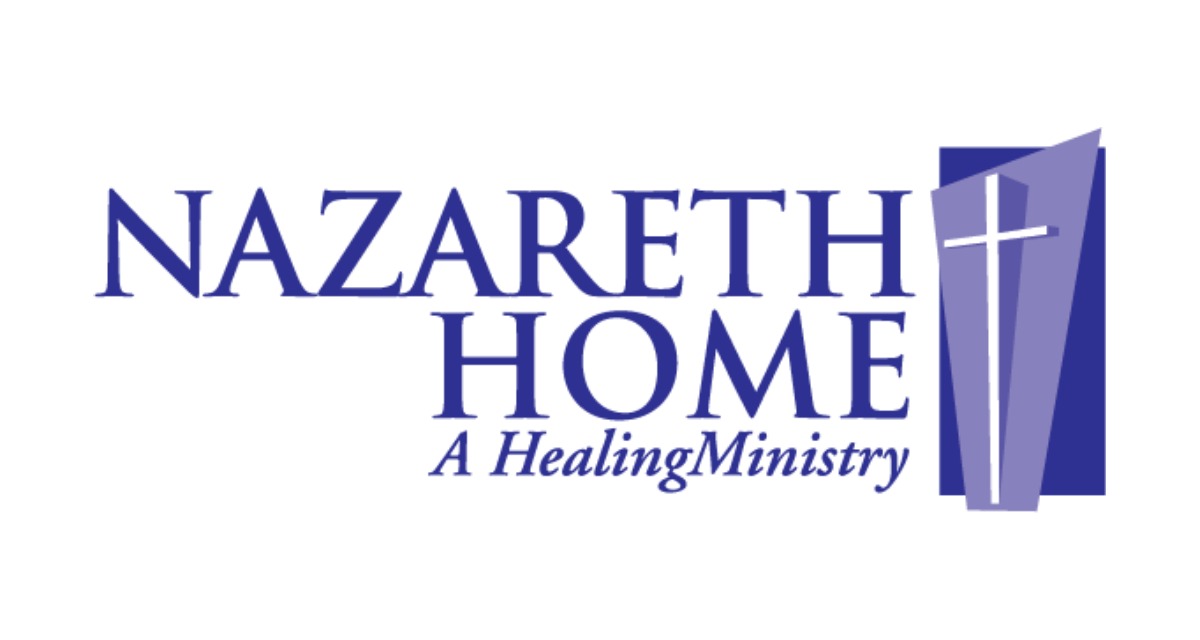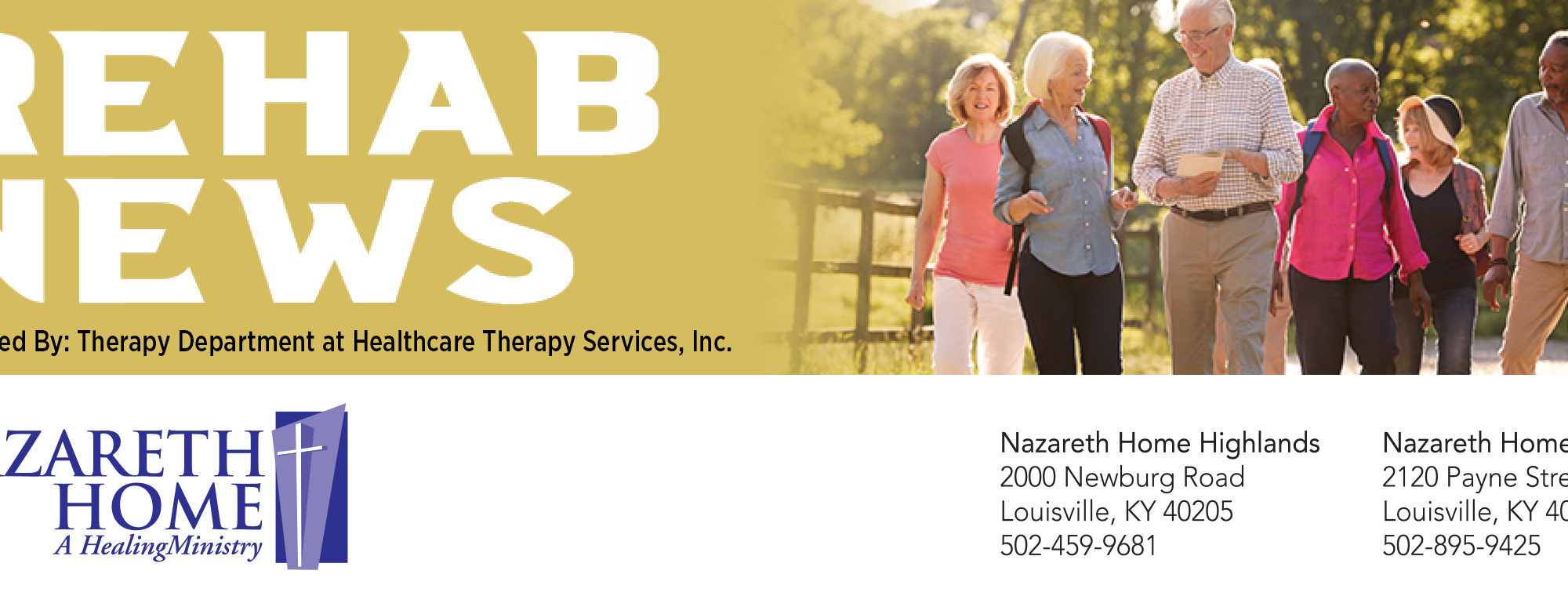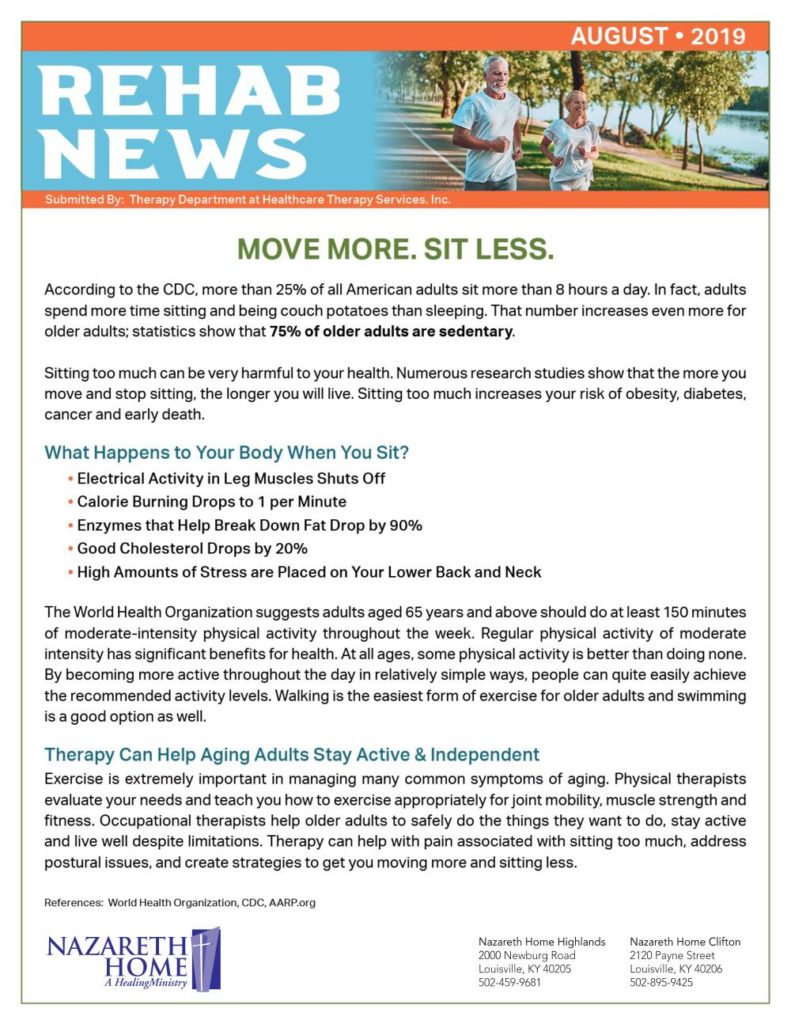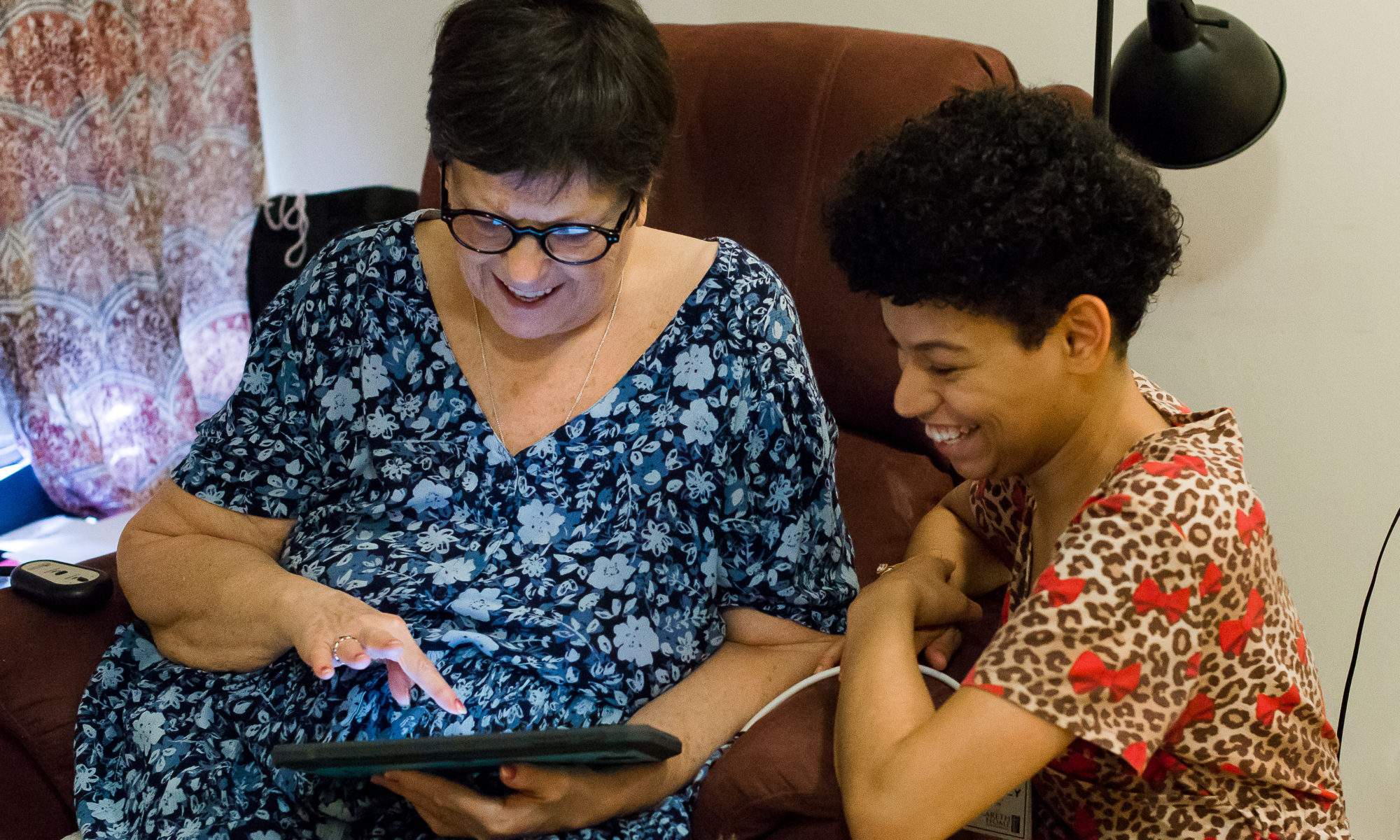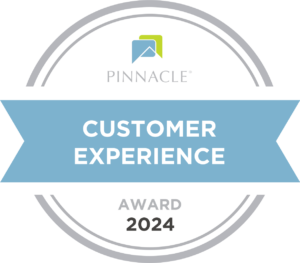True Doors welcome elders home
True Doors welcome elders home
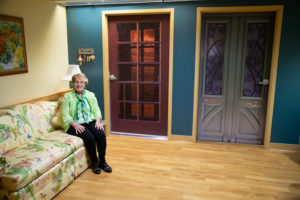 “The front door continues to appeal to our sense of arrival. Call it the ceremony of coming home,” writes Akiko Busch in his book Geography of Home: Writings on Where We Live.
“The front door continues to appeal to our sense of arrival. Call it the ceremony of coming home,” writes Akiko Busch in his book Geography of Home: Writings on Where We Live.
Isn’t it so true – how a simple door can give us that sense of arrival and peace and make us feel at home. That sense of arriving home rests your soul and eases your mind. Walking through your front door makes you feel safe; it brings you comfort and a sense of relief. It’s where you can be you, and the outside world doesn’t matter so much.
Now imagine that little by little, you are beginning to forget things. Imagine that sometimes during the day you are confused or lost, things look unfamiliar yet the same. You are not sure where to go. Through the unfamiliar, you see your door, and it gives you a flicker of a memory. You know it’s your door, the one to your home, your place of comfort, where you belong. That door speaks to you and calls to your senses that yes, you are in the right place. You are where you belong.
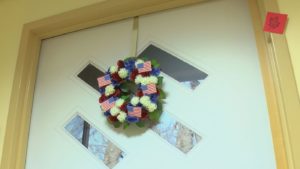 This is exactly what True Doors provide to the elders living on Charity Court, Nazareth Home’s Memory Care neighborhood. The decals placed over the residents’ doors look like a door from their past home or another door of the elder’s choosing. It creates a warm and familiar environment, bringing elders’ identities to the forefront while creating an atmosphere that feels more like home.
This is exactly what True Doors provide to the elders living on Charity Court, Nazareth Home’s Memory Care neighborhood. The decals placed over the residents’ doors look like a door from their past home or another door of the elder’s choosing. It creates a warm and familiar environment, bringing elders’ identities to the forefront while creating an atmosphere that feels more like home.
The decals help trigger memories and stimulate conversation. It gives elders a sense of pride and makes their home on Charity Court feel less institutionalized and more home-like. The doors also enable elders to remember how to “get home” to their rooms and avoid becoming disoriented.
True Doors is at the center of our person-centered care. Elders living on Charity Court have the choice of 500 designs, or they can submit a photo of a real door for a custom decal. Their choice in a door tells us a little bit about the elder’s life, or a little about their likes and dislikes, allowing us to get to know them better.
Home means something different to each of us, and our idea of home shapes our place in this world. And it all begins at the front door. The True Door decals welcome our elders home and bring a smile to everyone’s face.
Louisville senior care facility using innovation to improve quality of life
Louisville senior care facility using innovation to improve quality of life
Source: WAVE3
By Sean Baute
August 13, 2019
LOUISVILLE, Ky. (WAVE) – A national conference revolving around advancements in senior care came to Louisville recently. It’s part of a network of facilities looking to work together to make life better for an aging population. Together, they’re tackling problems that don’t happen overnight.
“Nobody wakes up and says, I’m going to move into a nursing home today,” said Michael Buckman, chairman of Nazareth Home. “That is never going to happen.”
At Nazareth Home in Louisville, innovating senior care, and sharing their success is the mission.Michael Buckman, Director of Development at Nazareth Home (Source: Doug Druschke, WAVE 3 News)
 “We want to make sure it’s an empowering environment,” Buckman said. “We want to make sure that all of their wishes are honored, and really we want to free them to be who they are.”
“We want to make sure it’s an empowering environment,” Buckman said. “We want to make sure that all of their wishes are honored, and really we want to free them to be who they are.”
At Nazareth Home in Louisville, innovating senior care, and sharing their success is the mission.
It’s programs such as True Doors, that are the result of adapting to a specific problem such as dementia care. True Doors allows to residents to pick out a door for their room.
“We’ve had families come in who say, oh my gosh, mom got her door, and first thing she wanted to do was show me when we got here,” said Buckman. “It is about lessening the anxiety, lessening the isolation, and just really telling the story about that elder.”
Some of the doors of the Nazareth Home residents are duplicates of the homes where they once lived.
The decals could be a door from a list, or it could be of the door from the house they just came from.
“They know exactly when they moved in there, how long they lived there,” Buckman added.”They have an incredible sense of pride in this community.”
True Doors is based in Europe, but it’s partnerships across the United States as well that make senior care innovation possible in Louisville.
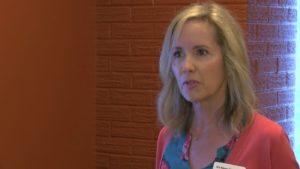
“Getting to come out and spend time in a community like this, it just reminds me how important the work we do is,” said Kristi Stoglin, Vice President of Client Success for It’s Never 2 Late.
It’s Never 2 Late is based in Colorado, and offers palliative care patients a digital portal to another world, or a previous memory of their own.
“People like Nazareth Home, who just want to do the absolute best that they can for their elders, and offer that kind of engagement every day, that’s where It’s Never 2 Late came from and what we’re still about today,” said Stoglin.
A Career of a Lifetime
A Career of a Lifetime
A career at Nazareth Home is more than just a job; it’s a mission. Our staff members passionately believe in what they do and are dedicated to providing excellent care to elders.
Our team members feel called to their positions and take pride in their work. Therefore, we strive every day to create an environment where they can thrive, have fun and embrace their mission to serve others.
Making a difference in the lives of elders and their families, being empowered to learn and grow each day and our ongoing goal to improve the workplace are just a few reasons staff give for their tremendous job satisfaction.
“A part of our mission at Nazareth Home is to embrace our staff,” said Jennifer Smith, human resource director or Nazareth Home. “We work together to provide not only the elders with the best person-centered care possible, but also our staff. Happy staff makes a happy workplace.”
If a career in senior living speaks to your soul, we may be a good fit for you. Explore our employment opportunities here.
August Rehab News
There is help out there
There is help out there
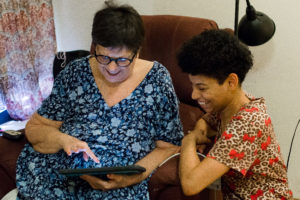 It is not easy to think of a loved one having to face daunting treatments, therapies and pain during a serious illness. The good news is there is help out there.
It is not easy to think of a loved one having to face daunting treatments, therapies and pain during a serious illness. The good news is there is help out there.
Palliative care is a specialized approach to easing suffering for people with serious illness. It’s about relieving pain, reducing symptoms and easing stress. It has also been shown to alleviate symptoms such as fatigue, shortness of breath and depression. Palliative care honors personal wishes and values, and research suggests that it may even prolong a person’s life.
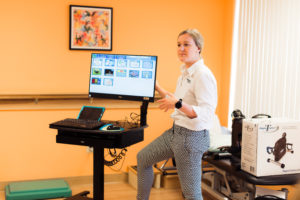 At Nazareth Home, we have partnered with iN2L (It’s Never Too Late) to create a groundbreaking and innovative palliative care program called Connected Affirmation Project (CAP). We are the first senior living community to use this technology for our palliative elders. And we couldn’t be more excited!
At Nazareth Home, we have partnered with iN2L (It’s Never Too Late) to create a groundbreaking and innovative palliative care program called Connected Affirmation Project (CAP). We are the first senior living community to use this technology for our palliative elders. And we couldn’t be more excited!
CAP provides an opportunity for innovative compassion at a time when many family members are at a loss as to how to interact with their loved ones. It allows avenues of engagement that are fulfilling and fun at bedside. It also gives staff members another venue for interaction that can be memory-making and entertaining.
Palliative elders often slow down in participation of activities outside of their room. This technology brings activities to the elder wherever they may be. It provides different types of engagement, including spiritual offerings such as hymns and prayers, movies, classic TV shows, games, music and so much more.
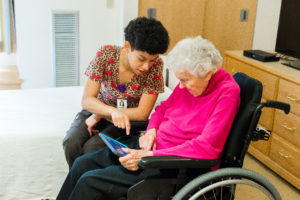 iN2L technology is also utilized to collect the elders’ life stories, allowing them to reminisce and reflect on their amazing life. This helps residents find meaning when faced with death, and the ease to say goodbye because they have lived full lives.
iN2L technology is also utilized to collect the elders’ life stories, allowing them to reminisce and reflect on their amazing life. This helps residents find meaning when faced with death, and the ease to say goodbye because they have lived full lives.
With these life stories, we create a legacy gift for family members when the elder goes to God. It includes information about their family, careers, service, skills, life accomplishments, and other interests and hobbies.
“I’m so grateful to be able to minister at Nazareth Home. It’s a wonderful place that embraces innovative technology for fun, meaningful and spiritual engagement,” said Bridget Bunning, Director of Pastoral Care & Mission.
CAP builds the palliative care program around what the residents like and dislike. With our focus on person-centered care we are driving home the belief of Dame Cicely Saunders, founder of the hospice movement:
“You matter because you are you, and you matter to the last moment of your life.”
Nazareth Home’s groundbreaking palliative care program
Nazareth Home’s groundbreaking palliative care program
Nazareth Home has exciting news! We’ve partnered with It’s Never 2 Late (iN2L) for a groundbreaking palliative care program called Connected Affirmation Project (CAP). The CAP program is the first of its kind in the U.S. and affirms the life of elders by utilizing iN2L technology to help tell their life-stories and create a legacy keepsake for families.
iN2L technology allows elders to use interactive tablets to stimulate intellectual curiosity with easy access to the Internet, view personal photos and videos that prompt joyful memories and stay connected with family and friends. It also educates and fosters communication about palliative care with residents, their families and Nazareth Home staff.
“This first-in-the-nation project represents our pioneer spirit and commitment to fostering person-centered care,” said Michael J. Buckman, director of development for Nazareth Home. “We appreciate iN2L as a partner that is willing to go outside the box with us. We chose to partner with It’s Never 2 Late because they have a company culture of serving others.”
Palliative care is medical care that specializes in providing relief from the symptoms, pain and stress of a serious illness to improve the elder’s quality of life. It is provided by a team of compassionate caregivers who partner with the physician to deliver an extra, specialized layer of support.
Nazareth Home was awarded over $200,000 for the CAP program from Civil Money Penalty (CMP) funds, through the Kentucky Office of the Inspector General and the Centers for Medicare & Medicaid Services (CMS).
Nazareth Home featured in documentary “It’s About Time”
Nazareth Home featured in documentary “It’s About Time”
Partnership with PayActiv reinvents financial wellness for employees and sets a precedent for employers across the nation
 Nazareth Home was recently featured in a short film produced by PayActiv called, “It’s About Time,” showcasing the importance of timely access to earned wages and the opportunity to promote financial wellness for the American workforce. PayActiv, a holistic financial wellness platform, offers a payroll solution to businesses to ease the financial stress of employees between paychecks. The success of the program at Nazareth Home sets a precedent for other employers across the country.
Nazareth Home was recently featured in a short film produced by PayActiv called, “It’s About Time,” showcasing the importance of timely access to earned wages and the opportunity to promote financial wellness for the American workforce. PayActiv, a holistic financial wellness platform, offers a payroll solution to businesses to ease the financial stress of employees between paychecks. The success of the program at Nazareth Home sets a precedent for other employers across the country.
In 2016, Nazareth Home began an innovative partnership with PayActiv to give employees immediate access to earned funds from their paycheck, helping to relieve any between-paycheck financial stress while providing them personal empowerment. Nazareth Home credits PayActiv with changing the way it supports employees and their financial wellness.
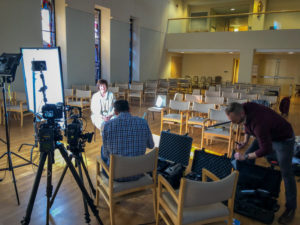 “When Nazareth Home acquired the Clifton Campus, many of the nursing positions were filled with good people who were working for a staffing agency. We wanted them to become our employees,” said Mary Haynes, president and CEO of Nazareth Home. “As I spoke with them, however, I learned they didn’t want to switch because the staffing agency paid them at the end of each day, and they needed that to make ends meet.”
“When Nazareth Home acquired the Clifton Campus, many of the nursing positions were filled with good people who were working for a staffing agency. We wanted them to become our employees,” said Mary Haynes, president and CEO of Nazareth Home. “As I spoke with them, however, I learned they didn’t want to switch because the staffing agency paid them at the end of each day, and they needed that to make ends meet.”
The documentary, “It’s About Time,” looks at pay timing and its correlation with epidemic financial stress being experienced by millions of working Americans. Living paycheck to paycheck is the reality for many people. Those who find themselves in that situation face a tough choice — go without, put the expense on their credit cards or opt for expensive, high-risk loans.
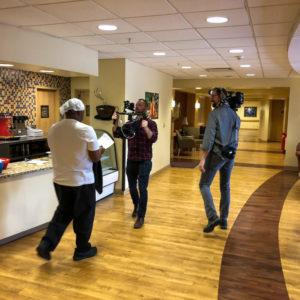 Haynes said utilizing the PayActiv platform was an innovative solution to the problem. “Having worked in long-term care for many years, I was acutely aware of the financial situations team members deal with, and the fact that many were seeking out payday loans, spending their money and never breaking even.”
Haynes said utilizing the PayActiv platform was an innovative solution to the problem. “Having worked in long-term care for many years, I was acutely aware of the financial situations team members deal with, and the fact that many were seeking out payday loans, spending their money and never breaking even.”
“The PayActiv financial wellness payroll application used by Nazareth Home is personal, independent and does not make team members “go to” anyone to use their “worked but unpaid” income. Employees use a phone application or an ATM just like using their bank account,” said Sohail Aslam, Co-founder and CTO of PayActiv. “The ability to use earned money on their own timetable is a game changer for employees and their families. People are saving money by not seeking risky loans, along with benefitting from the independence and privacy of meeting needs on their own terms.”
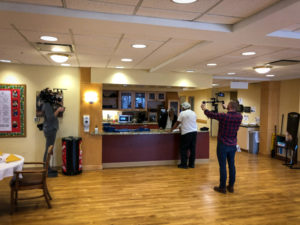 “Finding a solution for our hard-working heroes was important to us. The affiliation with PayActiv has empowered our team and aids in recruitment and retention of staff,” Haynes said. “It’s one of the most valuable strategies we have implemented in years.”
“Finding a solution for our hard-working heroes was important to us. The affiliation with PayActiv has empowered our team and aids in recruitment and retention of staff,” Haynes said. “It’s one of the most valuable strategies we have implemented in years.”
In addition, Haynes added, “The PayActiv solution continues to provide personal value to Nazareth Home, as well as our employees and their families. It brings financial security, dignity and increased savings to our workforce, and we are honored to be featured in a documentary that is shedding light on this important issue.”
To view the film, visit itsabouttimethefilm.com. For each person that shares the video on their social channels, PayActiv will contribute $5 towards a financial wellness fund to help paycheck-to-paycheck workers.
July Rehab News
Tips for visiting a loved one with Alzheimer’s
Tips for visiting a loved one with Alzheimer’s
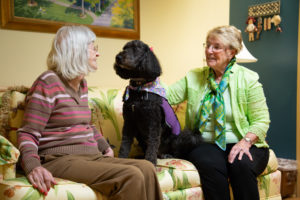 Know what to expect
Know what to expect
Increase the likelihood of a positive visit by setting realistic expectations. The middle stages of dementia can be difficult. Sometimes Alzheimer’s patients experience challenging behaviors such as delusions or anxiety, or become easily upset. They might not recognize you right away or remember your name. Knowing that these symptoms are part of the disease, and not a reflection of the person’s relationship with you, can help you to respond well and ensure that the visit is positive.
Prepare
Before a visit, determine three things your loved one enjoys discussing. Maybe it’s a hobby such as fishing, a former teaching job or grandchildren. If the conversation has slowed, you will be prepared to switch topics.
Introduce yourself
Maybe you think it should be obvious that you’re his or her favorite niece, but your loved one might not be able to place you – which can be distressing for both you and the elder. Save him or her the possible embarrassment or awkward moment by introducing yourself right away.
Be respectful
Although your loved one’s memory is not what it used to be, don’t talk down or treat him or her like a child instead of an adult who has many life experiences. In the midst of confusion, it is important to make sure your respect is conveyed.
Minimize distractions
If the room you’re visiting is noisy or busy, ask if your loved one would like to go outside or down the hall for a quiet walk. You’re more likely to have a clear conversation with fewer distractions.
Use clear statements and avoid slang
Communicating with a loved one who has dementia is usually more effective with concrete statements or questions, rather than abstract language or slang terms. For example, rather than saying, “It’s no use crying over spilled milk,” say, “It’s okay, Aunt Sarah. That happened a little while ago and it’s just fine now.”
Don’t ask too many questions
Your loved one’s short-term memory might not be fully intact for recent events. Don’t ask questions that relate to recent items, such as what he or she ate for lunch or the last time someone visited.
Expect good days and bad days
Don’t be surprised if one day is different from the next each time you see your loved one. Early, or mild, dementia can vary quite a bit. It’s possible you might not see any noticeable memory problems one day and more difficulties the next day.
Bring pictures to your visit
If you have pictures from years past, bring them along on your visit. Seeing photos from long ago can trigger memories that are stored in an Alzheimer-s patient’s long-term memory bank. Sometimes, people can recall specific names and events just by seeing a picture. Even if the response seems minimal, many individuals are reassured by seeing familiar photographs, and paging through an album can provide a guide for conversation. If you’ve had the privilege of knowing the person for a long time, reminisce by bringing up favorite memories from the past, which are great conversation starters and mood boosters.
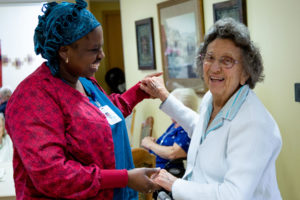 Focus on abilities, rather than impairments
Focus on abilities, rather than impairments
Although the elder’s memory may be declining, draw attention to remaining skills. If he or she is great at doing puzzles, bring one to work together. If your loved one’s gift is gardening, ask for tips on how to grow tomatoes. Seek out areas of strength and emphasize those topics. Provide lots of reassurances and distractions if the discussion becomes a struggle.
Sing
Not sure what to do when you’re visiting? Consider singing, especially if your loved one has always enjoyed music. If singing isn’t your thing, bring recorded songs to play. Music has the potential to stir memories and emotions, sometimes resulting in a person reciting all of the words to a song even when their ability to communicate has declined.
Don’t argue
Arguing with someone who has dementia is rarely beneficial, and you will accomplish very little by disagreeing. When your loved one insists that it’s Tuesday on a Monday, your best bet is to go with the flow. Arguing will likely increase agitation and frustration. While visiting, enter the patient’s reality. If your loved one has paranoia or delusions, don’t try to convince them that what they’re hearing or seeing isn’t real.
Remember that emotion often lasts longer than memory
Research has demonstrated that it’s not just the memory that matters with Alzheimer’s patients; it’s also the emotion created by a positive visit, which can last much longer than the specific memory of that visit. You may have impacted that person’s whole day by changing their feelings and behavior. Although the patient might not recall that you visited, the feelings you created can change how they interact with others and improve their mood. Next time you think it doesn’t matter, think again. The benefit of your visit might last long after you’ve gone.
If you feel as if you’re having to work too hard at the conversation, simply sitting quietly together may be more than enough. If the person you are visiting seems to be growing agitated, gently say your good-byes and leave. Sometimes a 15- to 20-minute visit is all someone with dementia can tolerate.
Read more: Visiting Someone With Alzheimer’s: Easy Tips For a Rewarding Visit

